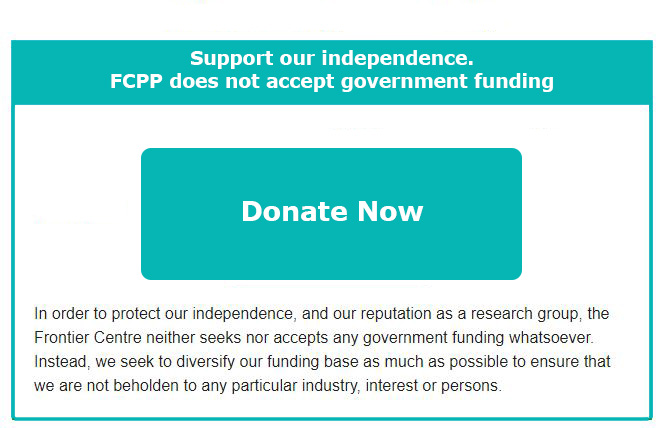Once again, the US presidential election has elevated Canadian health care—colloquially known as Medicare—as a role model. However, the COVID-19 pandemic has exposed its many shortfalls and triggered a public debate over allowing private alternatives.
A chief concern, though not the only one, among reform advocates is waiting times for medical attention and surgery. Integrating private and public health-care services could offer swifter patient-oriented care. Medicare’s proof is in the pudding, with 1,062,286 people on waiting lists in 2019 and 217,500 people heading abroad in 2017 to pay out of pocket rather than face rationed care.
In September, British Columbia’s Supreme Court ruled against broader private health care. Plaintiffs argued that excessive delays were a violation of Canada’s constitutional rights to life, liberty, and security.
However, the ruling did not deter supporters of expanded options. On October 17, Alberta’s United Conservative Party (UCP) officially endorsed a policy to create privately funded and managed health care. Awareness of the need to reform Medicare is here to stay.
Public Is Not Universal
The primary concern regarding the presence of private health care is the emergence of two tiers of quality. Rather than prioritizing patient urgency and need, the argument goes, access to medical attention would stem from capacity to pay.
This objection ignores reality. Affordability already rules the game, as Medicare severely fails to satisfy demand. In 2019, 12,336 patients on Medicare waiting lists ended up in private care thanks to contracts between public authorities and medical providers.
The lack of timely care leads to the overuse of the emergency room, where patients had to wait more than two hours for aid. Further, waiting increases pain, mental anguish, and even death.
According to a Fraser Institute study, delays have caused the death of 44,273 Canadian women between 1993 and 2009. More recently, in Quebec, 12 patients died from January to April 2019 while waiting for surgeries.
During the COVID-19 health crisis, the backlog in surgeries has snowballed. The system’s limitations forced people with severe conditions to postpone scheduled medical interventions, such as hip replacements and heart surgeries.
For Christine Van Geyn, litigation director at the Canadian Constitution Foundation, Canada must allow room for entrepreneurship in health care to tackle current constraints lest the problems compound in the long run. An active role for the private sector would address bottlenecks, improve overall quality, and save taxpayer dollars.
The Solution Is Out of the Box
In early October, the Alberta government announced it would cut 11,000 medical jobs in an attempt to save $600 million per year. Given legal constraints, plenty of these physicians and medical staff will not find employment in the private sector. The Canada Health Act forbids dual private-public practice for doctors and the private provision of treatment covered by Medicare.
Health care is Alberta’s highest budgetary expense, but recent events have shown the system is vulnerable to demand fluctuations. Rather than replicating the usual by piling on more public spending, the UCP wishes to create hybrid medical care.
Patients would be able to choose between health-care providers, and private actors could contribute to the sector’s investment and innovation. According to the UCP, it would also encourage medical tourism, so the scope of the industry would grow beyond ensuring swift care for Albertans.
Misperception of Public Health’s True Cost
In Calgary, doctors have started a campaign against possible health-care privatization in Alberta. They argue allowing private health care could increase costs.
Lori Williams, a political science professor at Mount Royal University, told Global News that “health-care workers can make more money in the private system.” Therefore, they would go to the private sector, impoverishing the quality of the public health-care services. This commentary, however, implies the lack of resilience and self-sufficiency of Medicare. 
In a recent report, the Fraser Institute revealed Canadians have no clear picture of the actual cost of Medicare. The main reason is that they do not pay directly for their use of health care. Rather, it accounts for an unclear portion of Canada’s tax revenues.
The classical-liberal think tank estimates the average payment for public health-care insurance in 2020 ranges from $4,190 to $14,474 for six Canadian family types. The 10 percent of families with the lowest incomes will pay an average of $471 in public healthcare insurance in 2020, and the top 10 percent of income earners will pay $39,731.
Considering these figures and existent shortfalls, there is much room for improvement. Lawmakers, however, will have to leave their comfort zones.
Germany, for instance, allows private health-care insurance to operate alongside the statutory one, and together they cover 100 percent of the population. Most of the German health indicators, such as waiting times and infant mortality, outperform Canada’s.
Similarly, in New Zealand, public health care prevails. However, citizens are able to acquire private health insurance too, which gives them more flexibility and timely attention. Rather than undermining public medical care, the private sector has been able to provide a broader range of treatment options and helped alleviate under-capacity in the public system.
Centralized surveillance and issuance of mandatory best practices will not be enough to provide long-term solutions to Medicare’s shortfalls. The pandemic has uncovered the need to take further action to garner better outcomes. By allowing room for competition and entrepreneurship, Medicare can use its budget more wisely, and patients can get the attention they deserve.
Paz Gómez is a research associate with the Frontier Centre for Public Policy.
Photo by FlamingoImages on Evanto Elements.



